

| Home | About the project | News | Papers and presentations | People | Background | Using IRs | IR research assessment contexts |
Download Bronze Release (20060126)
Download Bronze Release (20060206)
After installing the software, two new scripts are available for use:
These two scripts cover the functionality of the repository interface as covered in the IRRA white paper, in particular it is assumed that an external Reesearch Management system will takee the group reports and combine them into a full, Unit-of-Asseessment-based RAE subission.
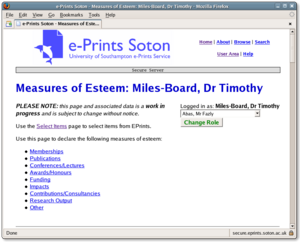
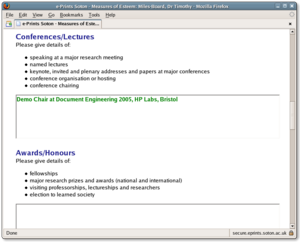
A user enters their measures of esteem. The fields presented to the user are defined in the module configuration file.
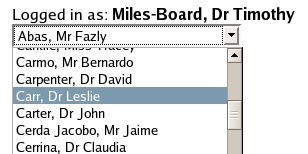
The module configuration can also define which users are able to carry out RAE tasks on behalf of other users*. For example, a research group administrator may be required to make choices on behalf of each of the researchers in a group. These available 'roles' are presented to the user and can be selected from a drop-down list.
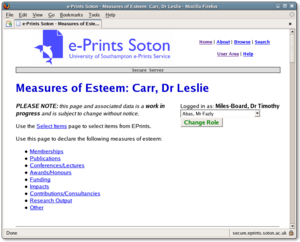
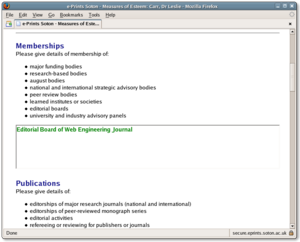
The user can now enter measures of esteem on behalf of another user.
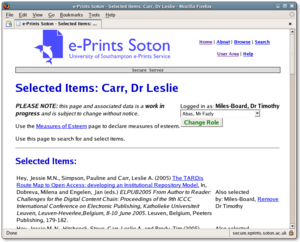
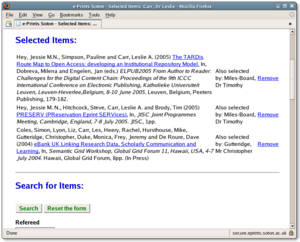
Moving to the eprint selection page, the user can now select eprints on behalf of the selected user. This page is split into two parts. The top part shows a list of currently selected items. Where items have also been selected by another user, this is flagged. Items can be removed from the list by clicking "Remove".
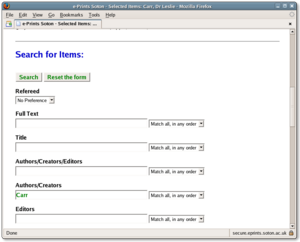
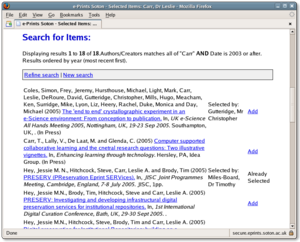
The lower part of the page is a search interface. The user can enter search criteria and search the repository. Matching items can then be added to the list of selected items by clicked "Add". The search form and citation style of the results are specified in the module configuration.
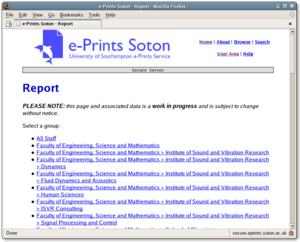

An administrator user views the list of available RAE reports, in this case by organisational structure. Having chosen a specific report to view, the administrator can see all the outstanding issues (as defined in the module configuration files*) flagged; here more than one user has selected the same eprint. The adminstrator can click "Edit Selection" to address these issues through the eprints selection page.

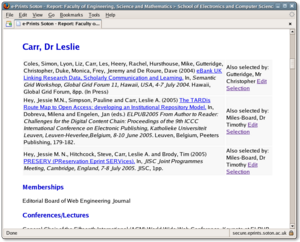
A report can be exported in a "printable" version (when saved and opened in Microsoft Word, each staff member will start on a new page) or in CSV format suitable for Microsoft Excel. The CSV export procedure is defined in the module configuration files, allowing, for example, formulas to be embedded as required*.
* These configuration options are Perl code "hooks".
| ^Top | |
| <Home |
|